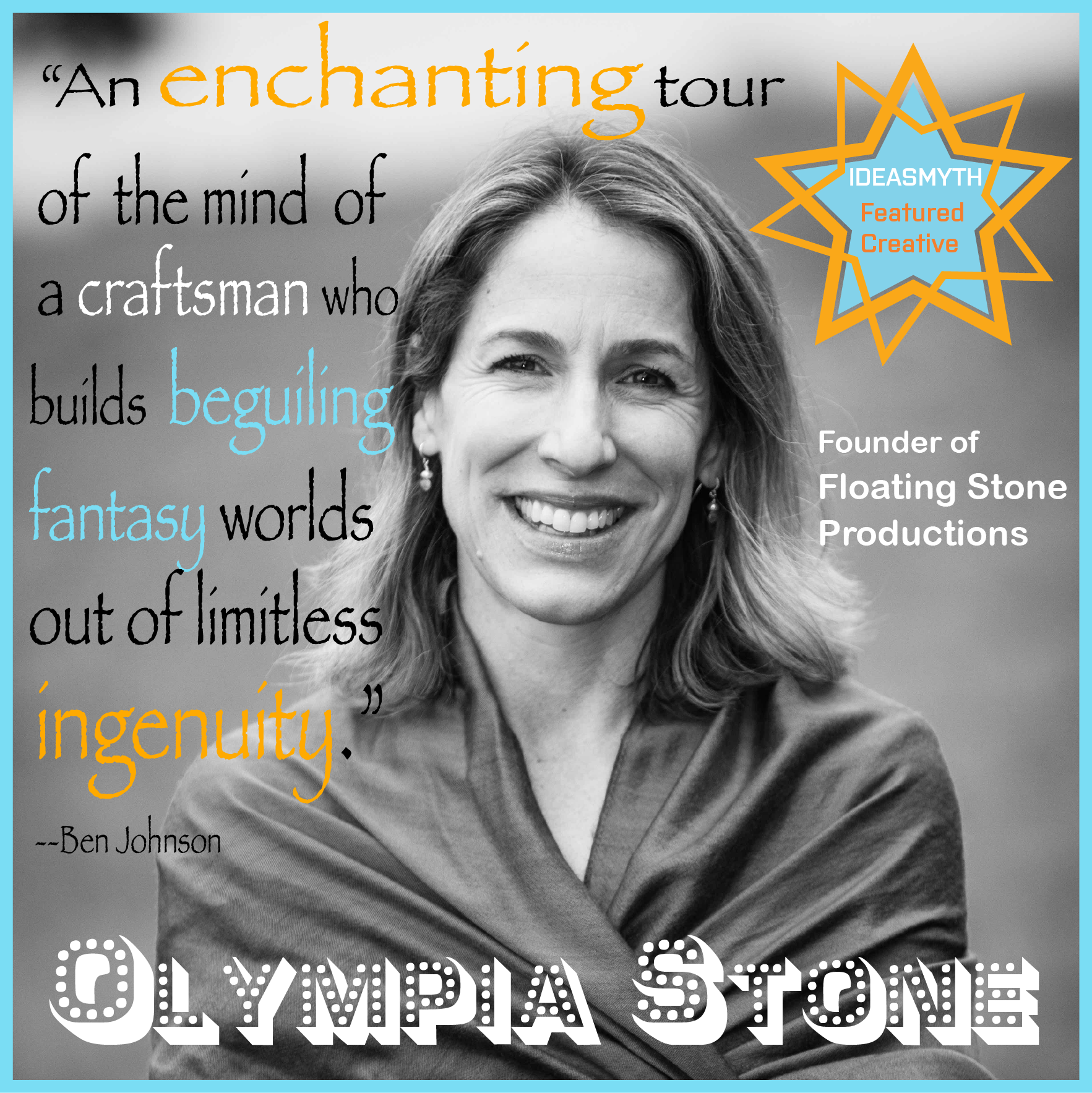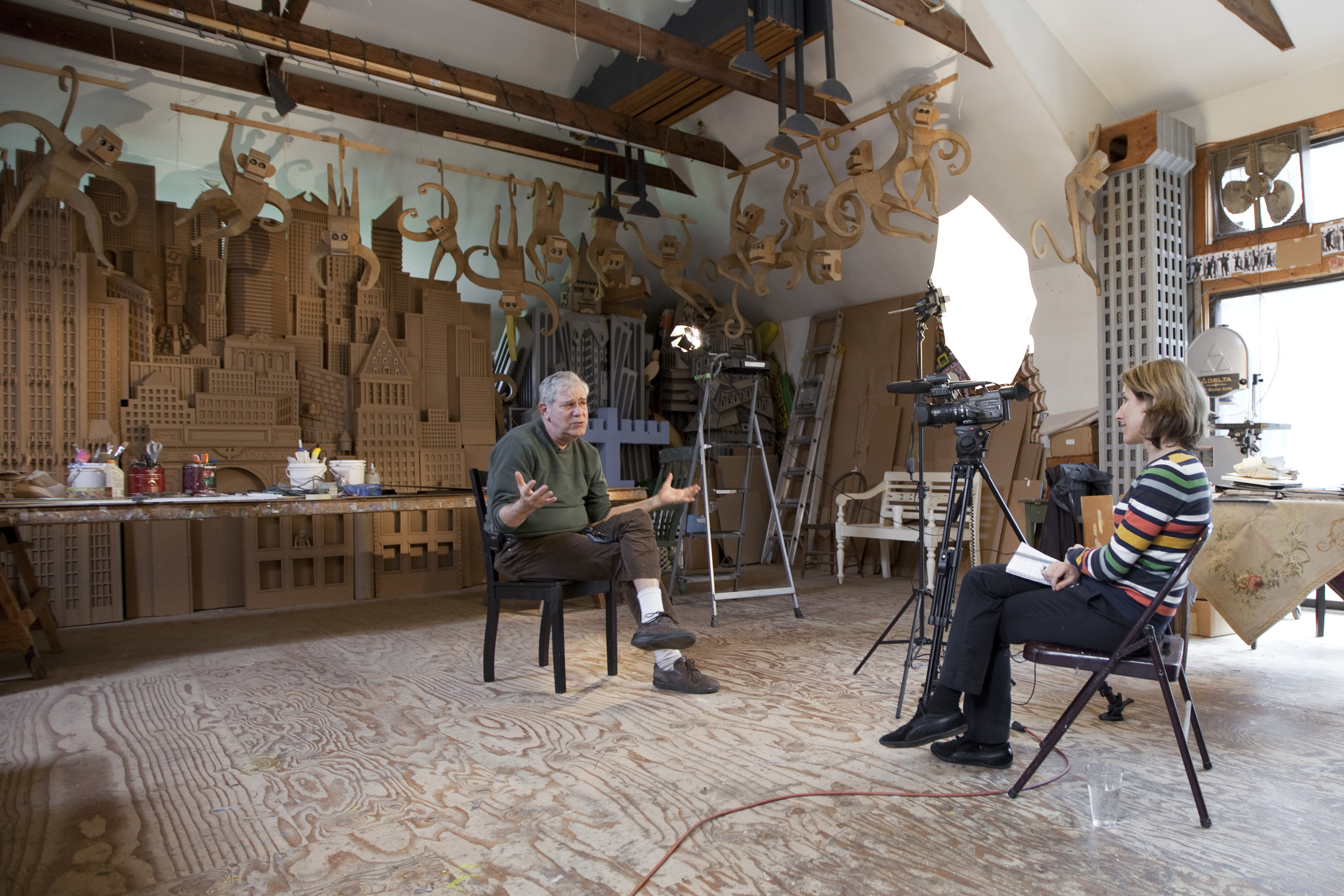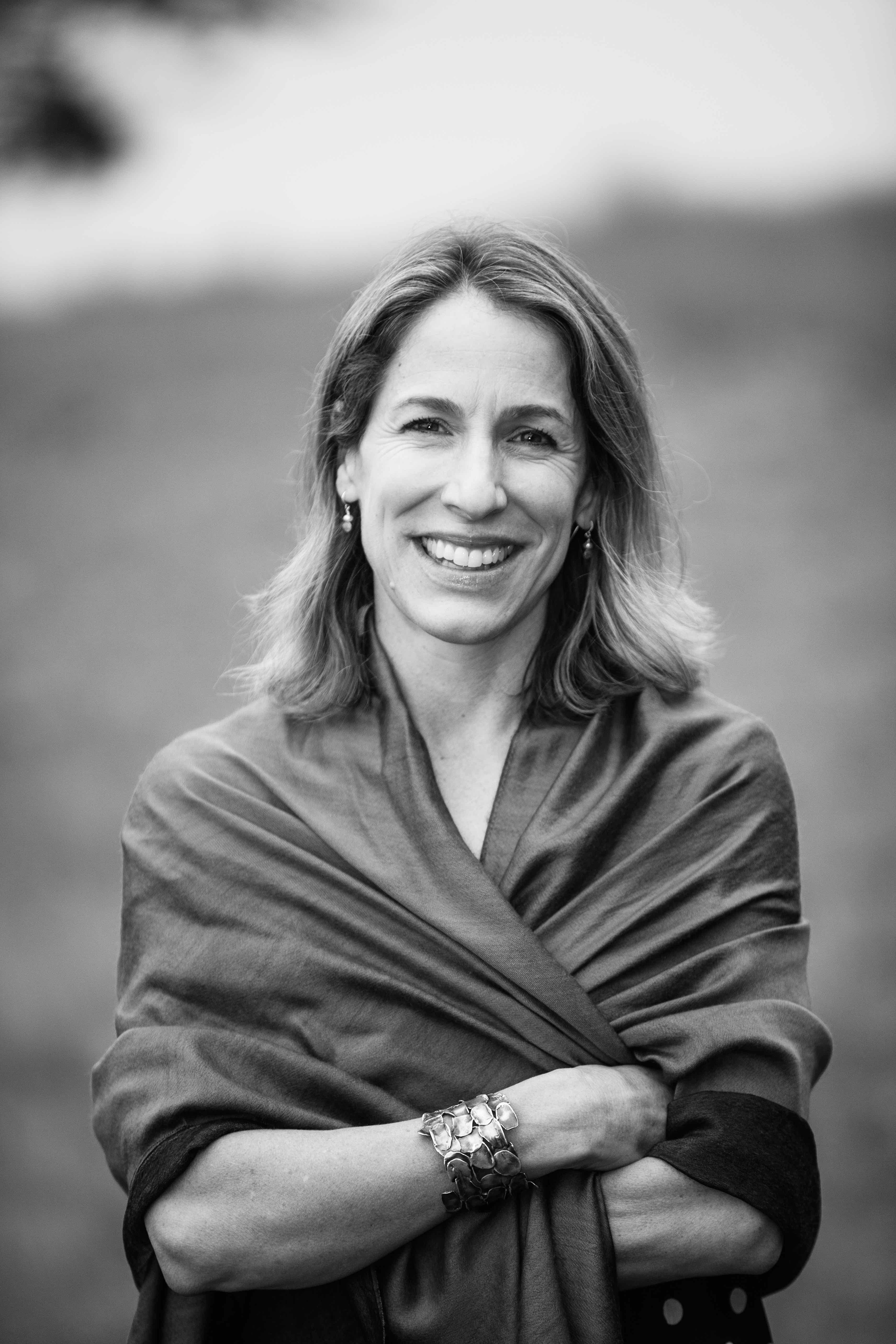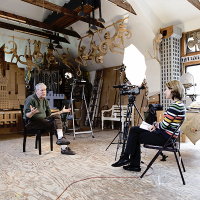 Olympia Stone grew up in a house where the artworks outnumbered the family-members several hundred to one. Her father was Allan Stone, the Upper East Side gallerist whose talent for discovering talent changed the contemporary artworld as he had serial success knighting new art stars from 60s through 2006 (the year of his tragically premature death). When Olympia got older, she became more and more curious about who made these larger-than-life (some were 15-feet tall!) former roommates, and so she founded Floating Stone, a production company dedicated to making films that permit the public the kind of intimate access to art that she grew up cherishing. Her first three documentaries have been racking up audience awards and critical acclaim on the festival circuit in addition to airing on PBS, proving that she too has inherited her father’s talent for discovery, albeit in her own medium. Having known Olympia since we both played kiddie tennis together, I couldn’t be happier for her—all these years later, I still can’t wait to see what she’ll serve up next!
Olympia Stone grew up in a house where the artworks outnumbered the family-members several hundred to one. Her father was Allan Stone, the Upper East Side gallerist whose talent for discovering talent changed the contemporary artworld as he had serial success knighting new art stars from 60s through 2006 (the year of his tragically premature death). When Olympia got older, she became more and more curious about who made these larger-than-life (some were 15-feet tall!) former roommates, and so she founded Floating Stone, a production company dedicated to making films that permit the public the kind of intimate access to art that she grew up cherishing. Her first three documentaries have been racking up audience awards and critical acclaim on the festival circuit in addition to airing on PBS, proving that she too has inherited her father’s talent for discovery, albeit in her own medium. Having known Olympia since we both played kiddie tennis together, I couldn’t be happier for her—all these years later, I still can’t wait to see what she’ll serve up next!
~Victoria C. Rowan, Ideasmyth Creatrix-in-Chief
***

Olympia interviewing James Grashow for from her film, “The Cardboard Bernini”
I have finally figured out what drives me to make films: I want to connect! Connect with my subjects and connect with my audience. I like intimate, hand-made, personal films. This is why I prefer an intimate filming situation—ideally, that includes me with a camera person and the interview subject. It may not be the way to get the most visually stunning looking interviews, but for me, it is much easier to get your interviewee to relax and “forget”—as much as is possible—that a camera is there. When everyone is relaxed, a real conversation can flow, and interesting things can happen. I believe this is where the best interview material comes from. I know when I am connecting with my subject, and from those building blocks, good things can happen.
So here are a few things going on behind the scenes during an interview: first, I try to make the interviewee as comfortable as possible, but in order to make them feel comfortable, it is vital that I feel comfortable. And for me, that comfort comes from having confidence in direction that I want the interview to go in. So I make sure that I have a firm handle on the questions that I am asking, and a strong sense of what I “need” to get from the interviewee. Sometimes I have to memorize my questions in advance or have a cheat sheet handy—it’s surprising how easy it is to forget to ask something when you are in the flow of an interview. I also always want to make it seem like the questions are not memorized but are arising naturally out of our conversation. The worst feeling is to walk away and realize you have lost an opportunity to ask something that could be crucial in building your story. The second way to get comfortable, for me, is through laughter. Laughter is always a great shortcut to breaking the ice and making things feel easy. Then there are super practical details, like making sure the subject has plenty of water and is physically comfortable.
And then, the interview turns on me when the film is done! I usually feel apprehensive before being interviewed and always think I can do better, but these are the ones that I feel the best about:
New York Times article:
http://goo.gl/INV0v4
WUNC radio interview
http://goo.gl/OzNVqD
See more of Olympia Stone’s Featured Creative posts on our Ideablog
 ~~~Olympia Stone is an award-winning independent producer, director and editor of documentary films. Her intimate portrait of the artist James Grashow, The Cardboard Bernini, details his exhilarating quest to create an intricately detailed cardboard version of the Trevi fountain, which he intends to abandon to the elements. Broadcast nationwide on PBS in 2013-14, the film also won Best Documentary at the Art of Brooklyn Film Festival 2013, and was an official selection at Sebastopol, Santa Fe and 18 other festivals. Her first independent film, The Collector: Allan Stone’s Life in Art (2007), chronicles the obsessive collecting of her father, a New York art world gallerist whose habits and prescient scouting shaped his life and the lives of many in his artfully cluttered orbit.
~~~Olympia Stone is an award-winning independent producer, director and editor of documentary films. Her intimate portrait of the artist James Grashow, The Cardboard Bernini, details his exhilarating quest to create an intricately detailed cardboard version of the Trevi fountain, which he intends to abandon to the elements. Broadcast nationwide on PBS in 2013-14, the film also won Best Documentary at the Art of Brooklyn Film Festival 2013, and was an official selection at Sebastopol, Santa Fe and 18 other festivals. Her first independent film, The Collector: Allan Stone’s Life in Art (2007), chronicles the obsessive collecting of her father, a New York art world gallerist whose habits and prescient scouting shaped his life and the lives of many in his artfully cluttered orbit.

